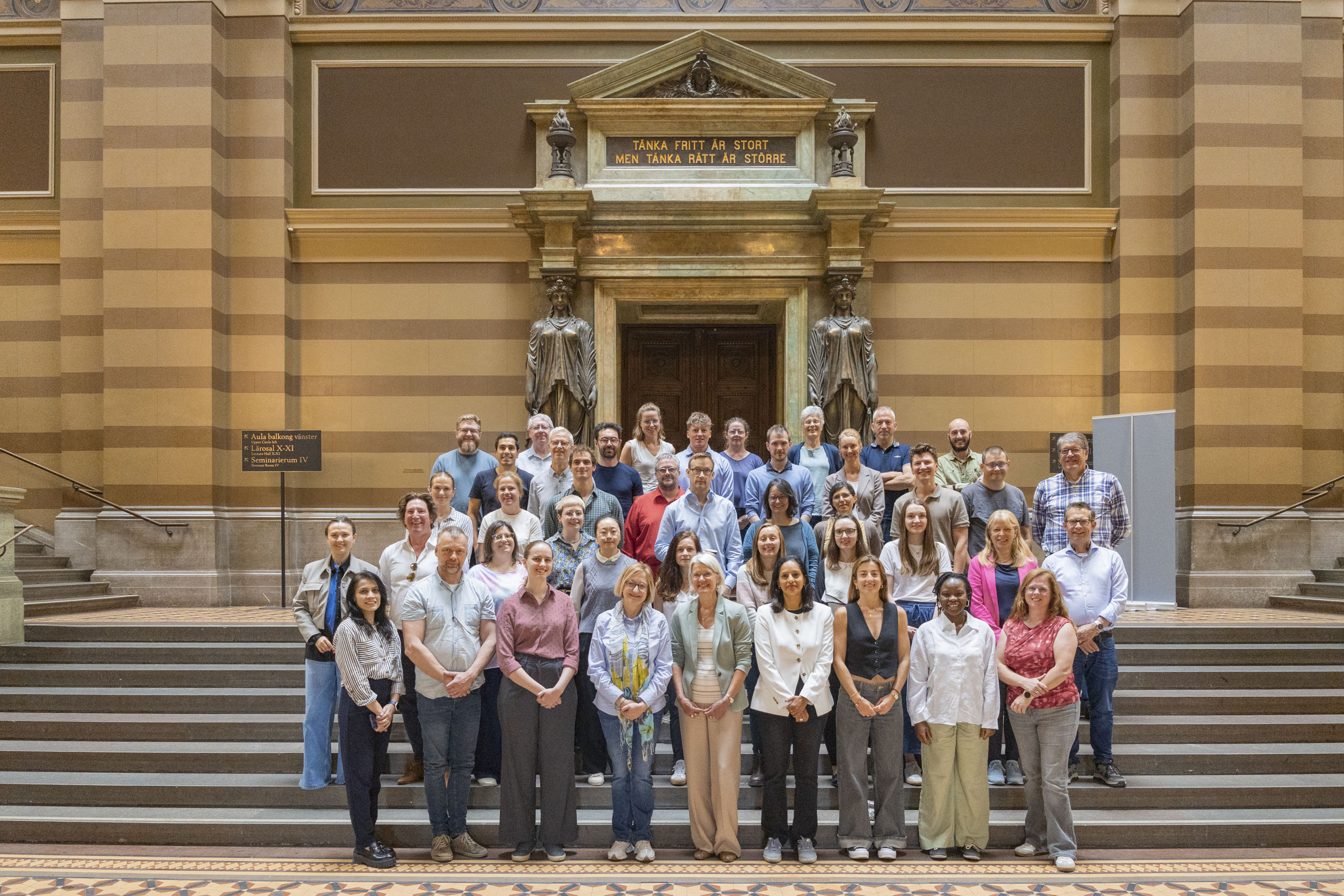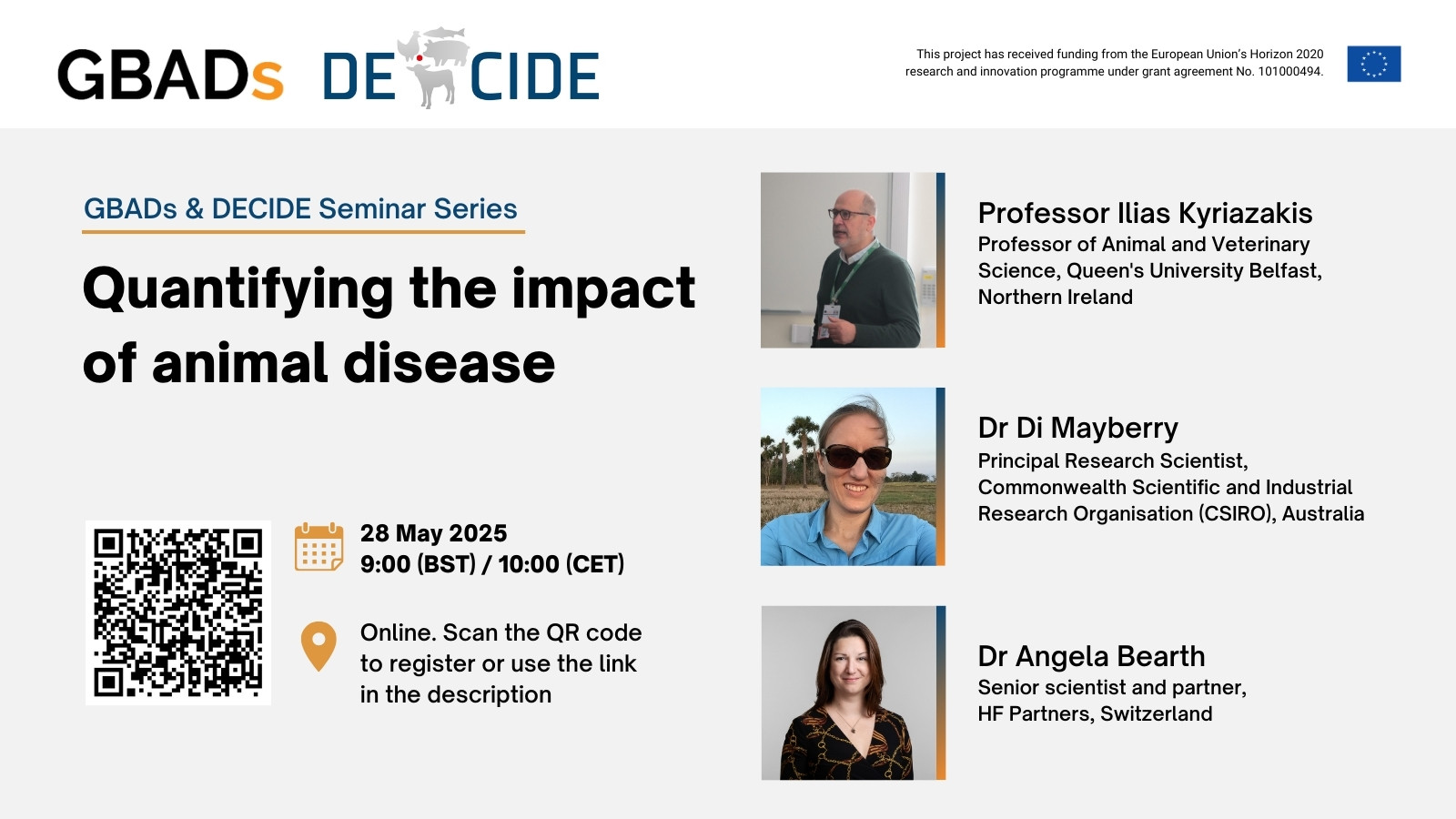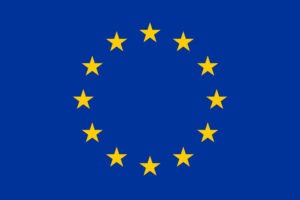
DECIDE General Assembly in Uppsala: Looking Ahead in the Final Year
On 17-18 June 2025, the DECIDE General Assembly brought together the project partners in the historic academic setting of Uppsala,
THIS WEBSITE USES COOKIES
We use cookies to personalise content, to provide social media features, and to analyse our traffic. By choosing 'allow all cookies', you consent to our cookies.
To find out more, read our privacy policy and cookie policy.
28 May 2025 at 10:00 AM CET / 9:00 BST
Farmers, veterinarians and other animal health managers in the livestock and aquaculture sectors are currently missing information on the prevalence and burden of contagious animal diseases that are not regulated by the European Union.
The diseases are estimated to cause 10-15% reduction in performance efficiency of livestock farming, resulting in large financial losses and lower sustainability as well as affect animal welfare.
DECIDE, a five-year Horizon 2020 project, will develop data-driven decision support tools that offer robust and early signals of disease emergence and options for diagnostic confirmation. Moreover, options will be provided for controlling the disease along with their implications in terms of disease spread, economic burden and animal welfare.
This partnership garners expertise in veterinary epidemiology and diagnostics, data science, mechanistic and predictive modelling, economics, animal welfare and social sciences. The consortium can also count on ample access to data from national animal health agencies, providers of veterinary services or farm equipment suppliers. This multidisciplinary consortium brings together 20 partners from 11 European countries.

On 17-18 June 2025, the DECIDE General Assembly brought together the project partners in the historic academic setting of Uppsala,

We are proud to share that DECIDE project partners took part in the European Symposium of Porcine Health Management (ESPHM

On Wednesday, 28 May 2025, GBADs and DECIDE hosted the eighth official seminar in their collaborative webinar series titled “Quantifying


This project has received funding from the European Union’s Horizon 2020
research and innovation programme under grant agreement No. 101000494.
